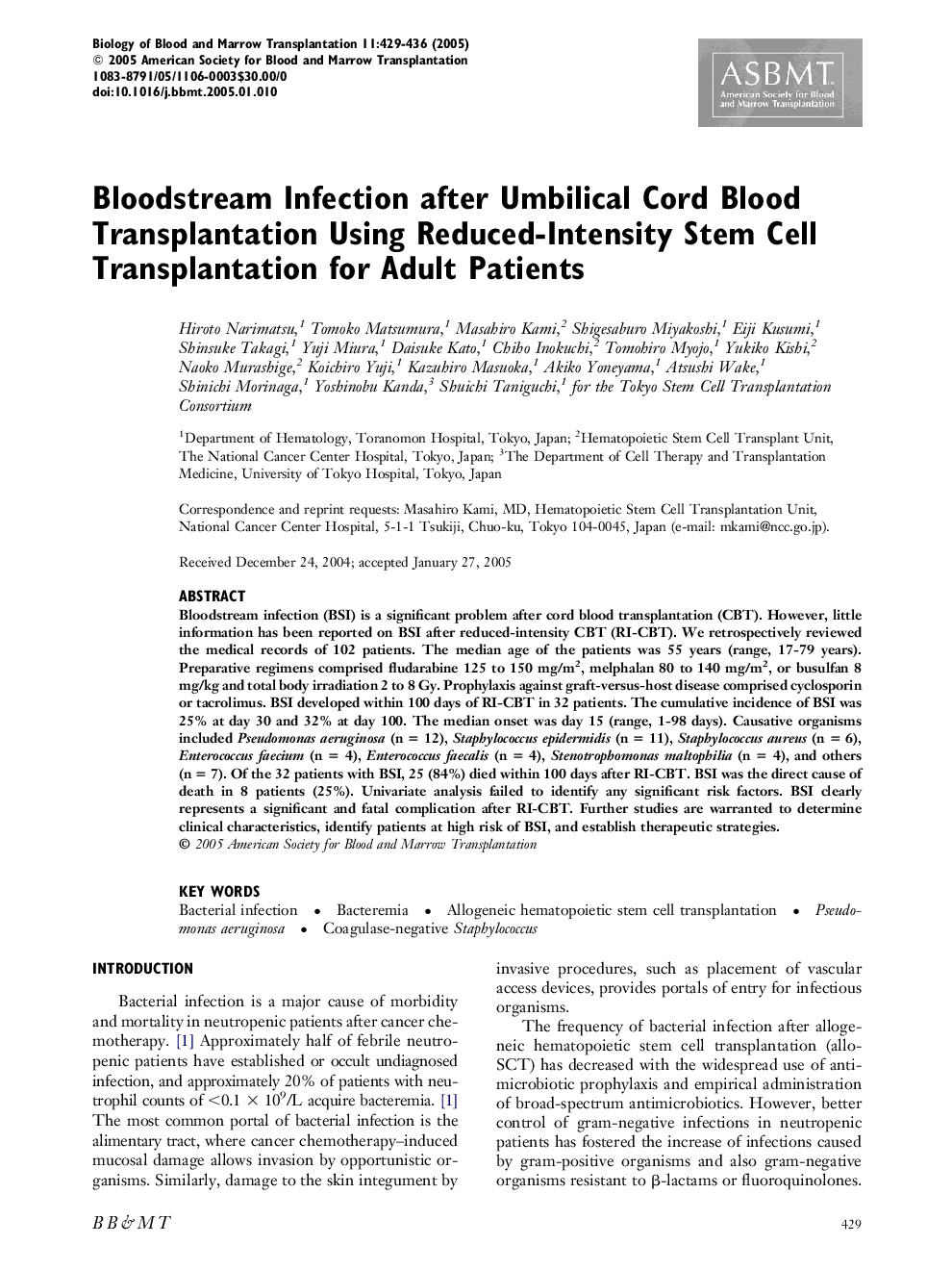| Article ID | Journal | Published Year | Pages | File Type |
|---|---|---|---|---|
| 9904208 | Biology of Blood and Marrow Transplantation | 2005 | 8 Pages |
Abstract
Bloodstream infection (BSI) is a significant problem after cord blood transplantation (CBT). However, little information has been reported on BSI after reduced-intensity CBT (RI-CBT). We retrospectively reviewed the medical records of 102 patients. The median age of the patients was 55 years (range, 17-79 years). Preparative regimens comprised fludarabine 125 to 150 mg/m2, melphalan 80 to 140 mg/m2, or busulfan 8 mg/kg and total body irradiation 2 to 8 Gy. Prophylaxis against graft-versus-host disease comprised cyclosporin or tacrolimus. BSI developed within 100 days of RI-CBT in 32 patients. The cumulative incidence of BSI was 25% at day 30 and 32% at day 100. The median onset was day 15 (range, 1-98 days). Causative organisms included Pseudomonas aeruginosa (n = 12), Staphylococcus epidermidis (n = 11), Staphylococcus aureus (n = 6), Enterococcus faecium (n = 4), Enterococcus faecalis (n = 4), Stenotrophomonas maltophilia (n = 4), and others (n = 7). Of the 32 patients with BSI, 25 (84%) died within 100 days after RI-CBT. BSI was the direct cause of death in 8 patients (25%). Univariate analysis failed to identify any significant risk factors. BSI clearly represents a significant and fatal complication after RI-CBT. Further studies are warranted to determine clinical characteristics, identify patients at high risk of BSI, and establish therapeutic strategies.
Keywords
Related Topics
Life Sciences
Biochemistry, Genetics and Molecular Biology
Cancer Research
Authors
Hiroto Narimatsu, Tomoko Matsumura, Masahiro Kami, Shigesaburo Miyakoshi, Eiji Kusumi, Shinsuke Takagi, Yuji Miura, Daisuke Kato, Chiho Inokuchi, Tomohiro Myojo, Yukiko Kishi, Naoko Murashige, Koichiro Yuji, Kazuhiro Masuoka, Akiko Yoneyama,
